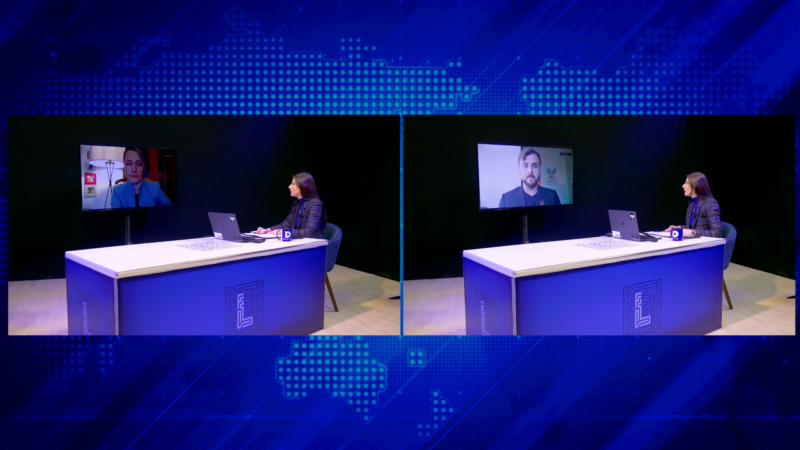Interview with security expert and former advisor to the Ministry of Defense, Emir Hasanović
Former Defense Minister, Radmila Sekerinska has been appointed Deputy Secretary General of NATO, making her the first Macedonian woman to hold a high position in the world’s most powerful military alliance. Sekerinska was at the helm of the ministry at the very moment when NATO accession took place, and her appointment can only be positive for our country – believes security expert and former advisor to the Ministry of Defense, Emir Hasanovic. We also discussed future expectations from the Alliance, as well as current European and global security issues.
Watch the full interview.
You Might also like
-
Increased efforts to resolve the issues in Kosovo and BiH
Kosovo will enter the Council of Europe, BiH received the green light from the EC
-
Democracy should rely on active and organized citizens – says Ambassador Hulman
Interview with the Ambassador of Switzerland, Veronique Hulmann
Macedonian-Swiss friendship has lasted for more than 30 years, says the Ambassador of Switzerland, Veronique Hulmann, in a guest appearance at Labyrinth. We discussed the new cooperation program launched by the Embassy of Switzerland, as well as the experience with Macedonian institutions so far. We discussed the three areas in which Switzerland helps North Macedonia, democracy, economic development and the environment, and we asked the Ambassador what her favorite place for hiking in the country is.
Watch the full interview.
Post Views: 807 -
Српските студенти пишуваат историја – Нерегуларности при изборот на РЕМ, продолжува линчот врз новинари и активисти
FOCUS ON SERBIA
Serbian students are not giving up on blockades. After the 24-hour blockade of Belgrade’s Avtokomanda, Novi Sad will be blocked this weekend. Three months have passed since the terrible accident that took 15 lives and the same number of months since the student blockades that woke up all of Serbia.
In this episode of Labyrinth, we talk to Aleksandra Krstic, a professor at the Faculty of Political Sciences in Belgrade, who was also a candidate for a member of REM, the regulatory body for the supervision of electronic media, but together with 6 other professors withdrew their candidacies due to numerous irregularities in the process.
We also talk to fellow journalist, Nikola Krstic, who is one of the journalists facing public lynching and labeling by pro-government tabloids.
Post Views: 1,044





